In addition to the Board, there is an Advisory Group that supports the Tenure Facility with guidance on strategic matters, contributing knowledge and expertise, and promoting links between Tenure Facility and other organisations.
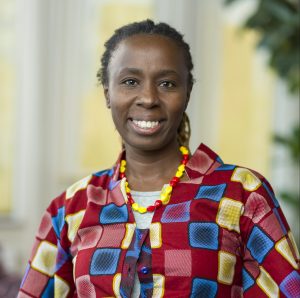
Ikal Ange’lei is the Founder and Director of Friends of Lake Turkana. She has five years experience working on environmental and natural resource governance and advocacy and is skilled in community mobilization and advocacy, gaining an award winning Kenyan Environmental Campaigns organization. Ikal has also worked as a Program Coordinator for the Turkana Basin Institute where she developed community outreach activities and programs by evaluating needs of the community groups. In 2012, Ikal won the Goldman Environmental Prize for Africa, for her work organising local people to fight the construction of the massive Gibe 3 Dam that would block access to water for Indigenous communities around Lake Turkana. Ikal has a PhD in Geography which she undertook at the University of Leicester, England.
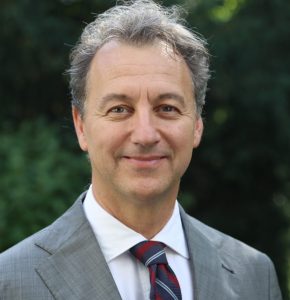
Mario is the Head of the UN-REDD Programme Secretariat, the forest and climate partnership of FAO, UNDP and UNEP. He has more than 25 years of experience with the UN, the World Bank and the European Commission at headquarters and country level in Africa, Asia-Pacific and Latin America on both operational and policy work on terrestrial ecosystems, forest governance, biodiversity and climate change.

Mark Constantine works within the context of IFC investments in agribusiness and forestry providing guidance and leadership in identifying, managing and mitigating environmental and social risks and identifying opportunities for IFC to add value for high profile agribusiness and forestry investments in developing countries. Mark works directly with private sector clients to prevent problems, help resolve E&S challenges and generate positive environmental and social outcomes. He has the primary responsibility for defining the IFC approach to land intensive investments while also holding the primary responsibility for agri/forestry policy and project level engagements with civil society. Mark is the co-chair of "Interlaken Group", a multi-stakeholder organization of NGOs, companies, and international development institutions promoting the positive role of the private sector in supporting land tenure rights.
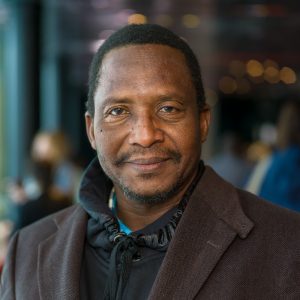
Ibrahima Coulibaly is the elected President of ROPPA, the Réseau des organisations paysannes et des producteurs agricoles de l’Afrique de l’Ouest (Network of Farmers’ Organisations and Agricultural Producers of West Africa). He was appointed by his peers at the Network’s 7th Convention, and is an agricultural producer active in market gardening, arboriculture and cereal production (millet, maize, sorghum, etc.), while also raising livestock and producing honey in the region of Koulikoro. Ibrahima has been involved in farmers’ movements at all levels since the advent of democracy in Mali in 1991. A tireless supporter of family farming, he is one of the founders of the CNOP, the Coordination nationale des producteurs du Mali (National Producers’ Organisation of Mali), of which he has been president since 2005. With the CNOP, he was one of the driving forces behind the Malian Parliament’s promulgation in 2006 of the Agricultural Orientation Law, which enshrined the concept of food sovereignty in its objectives and recognised the central place of family farming in any agricultural policy. Ibrahima Coulibaly was appointed United Nations Ambassador for the International Year of Family Farming in 2014. In 2007, he led the organisation of the first World Forum for Food Sovereignty in Nyéléni. In the same spirit, he was one of the leading West African figures in the movement to oppose agricultural trade liberalisation policies, particularly the Economic Partnership Agreements negotiated between the European Union and African countries. For several years, Ibrahima Coulibaly has been involved within the farmers’ movement in the development of an agro-ecological approach to food systems, from production, including land issues, all the way to final consumption in the cities.

Chris Jochnick is a global land rights expert and social entrepreneur with decades of experience in international development. Chris joined Landesa as CEO in August 2015 after leading Oxfam America’s work on corporate engagement including shareholder engagement, value chain assessments, and collaborative advocacy initiatives, such as the successful “Behind the Brands' ' campaign. Jochnick is the co-founder and former director of two pioneering non-profit organizations: Center for Economic and Social Rights and the Ecuador-based Centros De Derechos Económicos y Sociales. Jochnick spent seven years working in Latin America, devoting much of that time to addressing threats to indigenous peoples’ land rights. Prior to Oxfam, Jochnick worked as a corporate attorney with the Wall Street law firm Paul, Weiss, Rifkind, Wharton and Garrison, on corporate governance and social responsibility issues.

Since 2018, Tuntiak Katan has been Vice Coordinator of the Coordinator of Indigenous Organizations of the Amazon Basin (COICA), and since 2019 he has had the role of General Coordinator of the Global Alliance of Territorial Communities, formed by 4 international Indigenous organizations. He is also a member of the advisory board of Equitable Origen-EO. Tuntiak is native to the Ecuadorian Amazon and a member of the Shuar People. He completed a Technology in Conservation Biology and Natural Resource Management with the Missouri Botanical Garden after studying Applied Ecology and Environmental Management at the Universidad San Francisco de Quito.
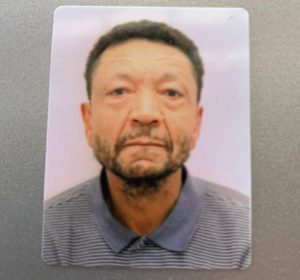
Yemi Katerere, a Zimbabwean, is a forester with global experience in forest research and management, policy and development, renewable energy, climate change and corporate governance. Yemi has worked in executive positions in state enterprises, national and international NGOs and the United Nations.
Yemi is a facilitator of the African Civil Society Biodiversity Alliance network and chairs, a Research Fellow of the Rights and Resources Institute and chairs the United Nations University’s Institute for Natural Resources in Africa (INRA) based in Accra, Ghana.
Yemi was Chief Executive of the Zimbabwe Forestry Commission, Director of the IUCN regional office for Southern Africa, Chair of the ICRAF Board of Trustees, Deputy Director General of the Centre for International Forestry Research (CIFOR) and Head of the UN-REDD Programme Secretariat. Yemi also coordinated WWF’s country offices in Central Africa and the ecological futures initiative.
Yemi has published extensively and in 2020 co-edited the book “Miombo Woodlands in a Changing Environment: Securing the Resilience and Sustainability of People and Woodlands”.

Alda Salomão is an environmental lawyer, land specialist and social activist. From 2002 to 2015, she served as the General Director and senior legal advisor of the Mozambican NGO Centro Terra Viva (CTV), which focuses on environmental research and advocacy, with land governance as its core theme. Apart from providing strategic and technical leadership to CTV’s three programmatic areas, Alda also led CTV legal support to the Community-based Natural Resources Management Platform (2008-2010) and to the Community Land Initiative – iTC (2006-2012). From 2013 to 2015 she coordinated the Secretariat of the Civil Society Platform for Natural Resources and Extractive Industry, and since then she coordinates the Platform’s legal support to communities affected by investments projects in the country. Before establishing CTV in November 2002, she worked at the Legal Department of the Mozambique Ministry for Coordination of Environmental Affairs (1995-1997), and afterwards at the World Resources Institute, Institutions and Governance Program/Africa (2000-2002). In 2015 Alda provided technical guidance to the Mozambique 2015-2016 Land Governance Assessment (LGAF). Alda holds a Master’s Degree in Environmental Law and has completed and submitted a PhD thesis in Human Geography and Spatial Planning at the Utrecht University, with focus on Land Governance for Sustainable Development.
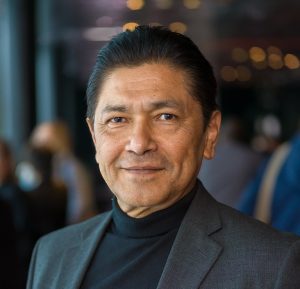
Gustavo Sánchez Valle is an Agricultural Engineer Specialist in Agricultural Economics from the Chapingo Autonomous University. From 2003 to 2019 he served as President of the Board of Directors of the Red Mexicana de Organizaciones Campesinas Forestales A. C. (Red MOCAF). Gustavo also served as a Member of the Executive Commission of the Mesoamerican Alliance of Peoples and Forests (AMPB), from 2012 to 2018. In addition, he was a member of the Board of Directors of the Initiative for Resources and Right, and was a Principal Observer for the Civil Society of Latin America and the Caribbean in the UN REDD Program and official Observer of Civil Society for the Latin American and Caribbean region in the Forest Carbon Partnership Facility. Gustavo has served as a Member of the Forest Communities Representation of the National Forestry Council (CONAF), Coordinator of the Technical Committee on Forests and Climate Change of CONAF and Head Member of the Mexican Forest Fund.
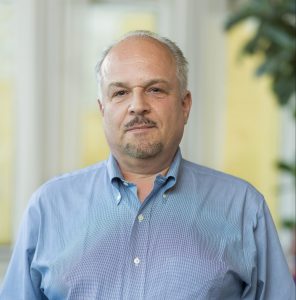
Gerardo Segura Warnholtz is currently a Senior Forestry Officer at FAO. Prior to joining FAO, Gerardo was a Senior Rural Development and Natural Resources Management Specialist at the World Bank from 2005 after coordinating the National Program on Community Forestry in Mexico under the Mexican Forestry Commission (CONAFOR) and the Ministry of Environment and Natural Resources (SEMARNAT) for more than ten years. He also acted as Technical Secretary of the National Advisory Council on Forestry Affairs. Prior to this, Gerardo was Assistant Professor in Forestry Ecology and Silviculture at the Institute of Ecology of the National Autonomous University of México (UNAM). He holds a Ph.D. and M.S. in Forest Sciences from the University of Washington and a B.A. in Biology/Ecology from the Universidad Metropolitana, Mexico. During his years in the World Bank, Gerardo has worked extensively in operations and advisory services throughout Latin America, and more recently, in Africa. His areas of expertise include community forestry, carbon finance and forest tenure security, in which he has published more than fifty peer-reviewed articles and technical reports.